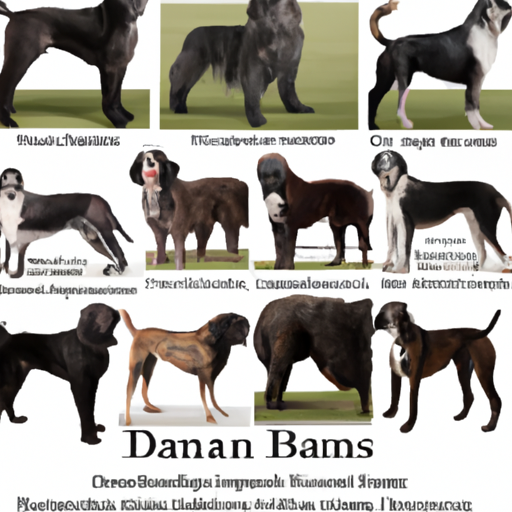As a caregiver, you’re likely to find a great deal of joy and fulfillment in nurturing and looking after others. And, if you’re considering adding a dog to your family, you may be interested in knowing about the biggest breeds out there. After all, the larger the dog, the more there is to love, right?
1. English Mastiff
Undeniably, the English Mastiff is one of the largest breeds in the world. Historically, these dogs were bred to guard estates, a job they could perform thanks to their impressive size and protective nature.
- Weight: Up to 230 pounds
- Height: 27-30 inches
They’re gentle giants, known for their calm and loving demeanor, making them excellent family pets.
2. Great Dane
The Great Dane, often referred to as a “gentle giant,” is another massive breed. They are known for their friendly and patient nature, along with their towering height.
- Weight: 100-200 pounds
- Height: 28-34 inches
Despite their size, Great Danes are incredibly gentle and are known to get along well with children and other animals.
3. Saint Bernard
The Saint Bernard is a breed that is as large in size as it is in heart. These dogs are known for their strength, and historically, were used for rescue operations in the Swiss Alps.
- Weight: 130-180 pounds
- Height: 26-30 inches
Saint Bernards are gentle, friendly, and very patient, making them a wonderful breed for families with children.
4. Newfoundland
Newfoundlands, known for their webbed feet and thick, waterproof coats, were originally bred to help fishermen in Canada.
- Weight: 100-150 pounds
- Height: 26-28 inches
These dogs are known to be gentle, sweet-natured, and excellent with kids.
5. Irish Wolfhound
Irish Wolfhounds are known for their tall, lean bodies. These dogs were originally bred for hunting wolves and elks in Ireland.
- Weight: 105-120 pounds
- Height: 30-35 inches
Despite their hunting history, Irish Wolfhounds are gentle and friendly, typically getting along well with other dogs and animals.
| Breed | Weight (lbs) | Height (inches) |
|---|---|---|
| English Mastiff | Up to 230 | 27-30 |
| Great Dane | 100-200 | 28-34 |
| Saint Bernard | 130-180 | 26-30 |
| Newfoundland | 100-150 | 26-28 |
| Irish Wolfhound | 105-120 | 30-35 |
FAQ
Q: Are larger dogs harder to care for?
A: Not necessarily. While they may eat more and require more space, their care requirements are generally similar to smaller breeds.
Q: Do bigger dogs have shorter lifespans?
A: Generally, larger dogs do have shorter lifespans than smaller breeds.
Q: Are these dogs good for families?
A: Yes, all the breeds mentioned are known to be gentle, friendly, and good with children.



